Felines are subtle animals and it can be tricky to tell if you’ve got a stressed cat in your home. Their behaviour might change slightly, or they might begin to do things that you perceive as ‘being naughty’. In fact, the domestic cat can be great at hiding signs of stress or signs that they’re in pain – it’s in their nature. In the wild, this would help them avoid becoming an easy target for predators.
If your cat is stressed, they can become emotionally and physically unwell, resulting in problem behaviours and a worrying time for both cat and owner.
Like humans, there are many reasons cats get stressed. Stress is an immediate response to a threat that activates the cat’s ‘flight or fight’ response. It is important you spot the signs of stress in cats and try to reduce that stress as much as possible to ensure your cat stays healthy.
Perhaps your moggy has started scratching the furniture when they didn’t before, or spending all their time hiding in the airing cupboard? If they were a confident cat previously, the likelihood is that something is making them feel stressed.
From an emotional perspective, cats can feel fearful, anxious, frustrated, or even depressed. They can also have an emotional response to pain (for example, being in pain is stressful and tiring). Additionally, being bored can cause stress. It’s a common misconception that cats feel jealousy, spite, or want to get revenge. As far as science can tell us, cats don’t feel these things.
It’s important to understand your cat’s underlying emotions as this can help you to understand the cause and how to address it.
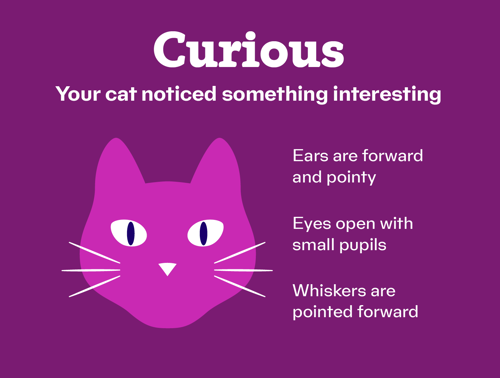
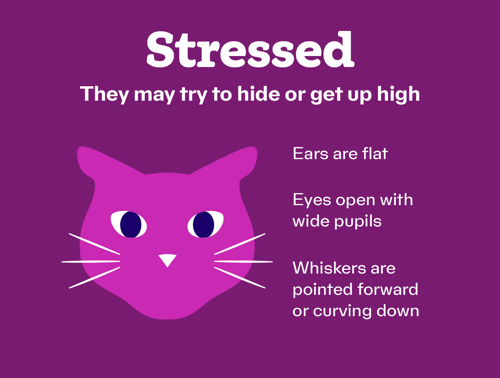
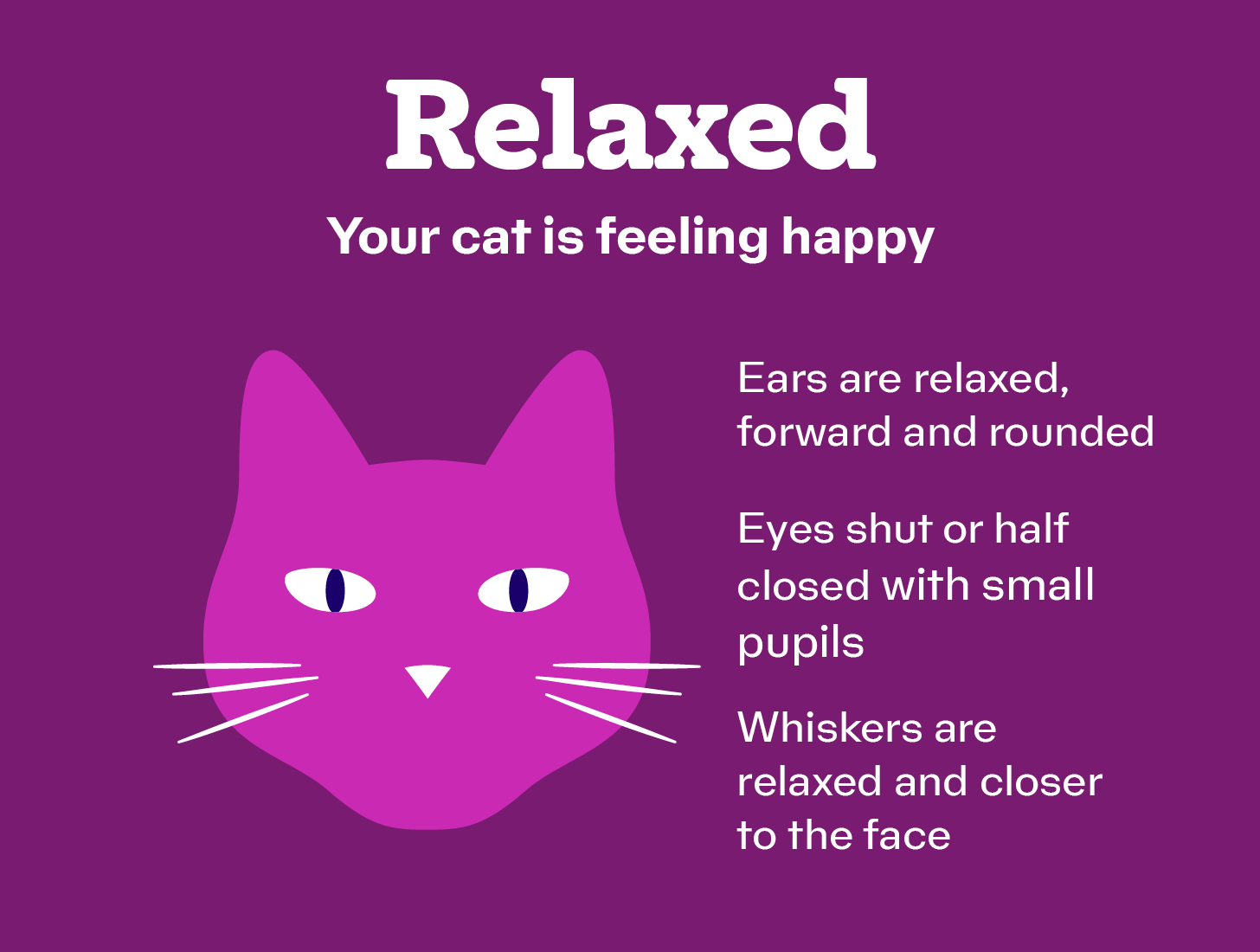
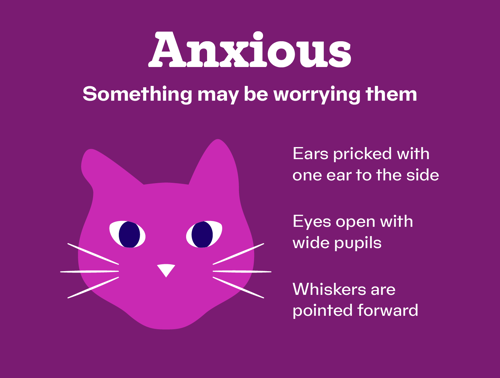
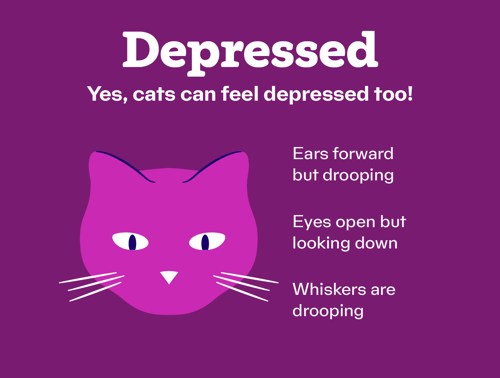
Worried about your cat’s symptoms or change in behaviour? While there are a lot of things you can do at home to calm a stressed cat, planning in a visit to the vet should be top of your list.
If you’ve found a problem with your cat’s physical health, such as weight loss or issues with toileting, it is even more important to get them seen quickly.
Your vet may suggest things you can do at home to keep your cat calm, such as altering their environment or changing their routine.
If you’re concerned about your cat’s behaviour and are struggling to reduce stress, you might be referred to a qualified behaviourist who can identify the underlying cause of the stress and design a tailored behavioural plan for your cat.
Make sure the behaviourist belongs to a regulated body like the Animal Behaviour and Training Council. They’ll be able to focus on the issue with your cat’s behaviour and help them (and you) to manage. Learn more about finding a good cat behaviourist.
One way to help reduce stress is a plug-in pheromone diffuser like Feliway. You simply plug it in the room where your cat spends most of their time (the living room, for example) and it can help them to reduce their anxiety. However, it should be used in combination with medical and behavioural advice as it is one piece of the puzzle to help. It may not be that effective when used as a stand-alone treatment (which is the same for most advice).
There are many reasons cats can become stressed. Some cats are more sensitive than others and what affects one may not bother another cat. Circumstances that cause stress might include:

Want to find out more about what could be causing stress in your cat? Take a look at our blog for six signs of cat stress.